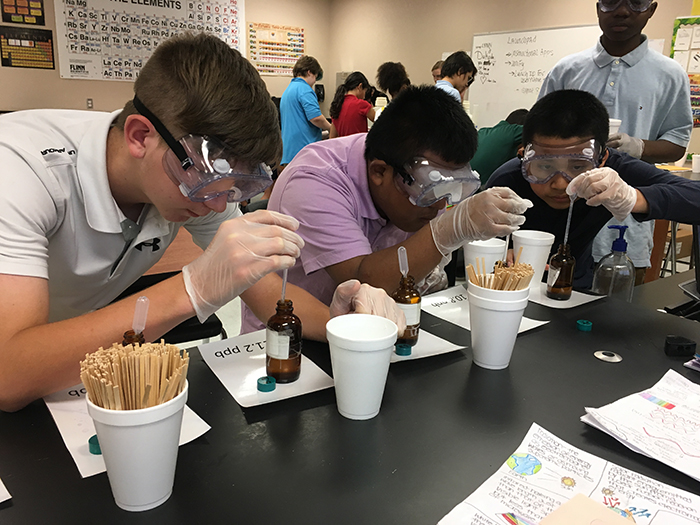Education Programs

Kindergarten
Kindergarten Mosquito Program
The Kindergarten Mosquito Program is designed to introduce our youngest learners to life science. This science-readiness lesson uses the characteristics of a mosquito to teach students about basic attributes of insects, including an insect’s life cycle. Students create a model of a mosquito to take home that highlights its two wings, six legs, two antennae, and three main body segments. The classroom is also provided with a sample of living mosquito larvae in an enclosed container, allowing students to see what the little wigglers look like first hand.

Grade 5
Ponds, Puddles, and People
Students participate in activities that help them learn about the relationship between weather and mosquitoes, the life cycle of the mosquito, diseases transmitted by mosquitoes and mosquito control methods. Students examine the difference between facts and opinions, are introduced to the science of taxonomy, and observe live “skeeter eaters” during the unit. They also learn about mosquito control methodologies and how those methods have changed in response to greater environmental awareness.

Grade 7
Mosquitoes and Other Insects
This presentation emphasizes both the importance of insects to natural systems and the health and economic problems posed by insects. Many examples of exotic and local insects are presented and the students learn about entomology as they examine different species. Students participate in a “MicroMosquito” lab, viewing the mosquito life cycle and a comparison of male and female mosquitoes under the microscope. The program wraps up with a look at mosquito vectored diseases and a look at mosquito control methodologies.

High School Biology
Bacillus sphaericus Bioassay
This unit focuses on the development, implementation, and analysis of a Bacillus sphaericus bioassay (B. sphaericus is a naturally occurring bacteria used to control certain species of mosquito larvae). During this lab, students realize that biological agents of control can be alternatives to chemical pesticides for pest control. The students make inferences and conclusions based on the results of this authentic science lab experience.

High School Chemistry
The problem of insect resistance to pesticides is explored and the biological and economic consequences of resistance are discussed. During the lab experience students conduct a susceptibility test with Culex mosquito larvae. The results of the test are analyzed, evaluated and used in the discussions.


